Six Degrees of Separation: from True Story of the Kelly Gang to My Grandmother Sends her Regards and Apologises

Welcome back to Six Degrees of Separation, where every reader starts with the same title and links to six other books, depending on whatever random ways our brains make connections.
This month’s starting book is True Story of the Kelly Gang by Australian author Peter Carey.

On my mum’s side of the family is the story of a great-great uncle, John Negus, who apparently knew Ned Kelly. Uncle John was caught for holding up a mine manager and taking off with more than £1500 worth of gold and notes. While this story is well documented, the chances of him actually knowing the more famous bushranger are rather slim, especially given my ancestor was only about eight years old when Ned Kelly was hung in 1880.
Another story where fact and legend have become entwined is that of pirate Anne Bonny. Meg Caddy has written a fictionalised, but thoroughly researched, account of Anny Bonny’s life, first in Devil’s Ballast and now with a sequel, Slipping a Noose, which imagines the pirate’s life after the historical record becomes a blank page.
Considering the balance between truth and fiction when retelling the past is something Alice Munro does in The View from Castle Rock. In the introduction, she explains that she has drawn the stories from her family history and the facts where they’re to be found. When they can’t be, she makes the rest up.
Alice Munro is especially famous for her short stories. George Saunders has recently published A Swim in a Pond in the Rain, in which he draws on the stories of Russian writers as a “masterclass in writing and life”.
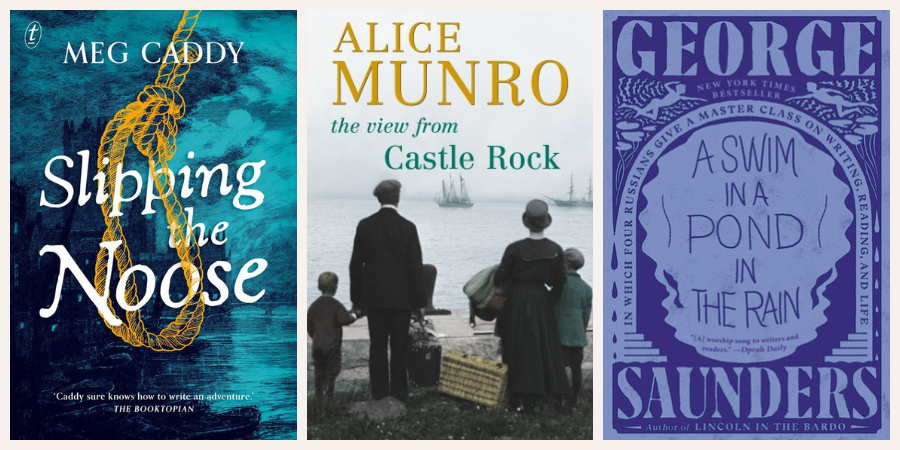
Saunders’ previous book Lincoln in the Bardo one the 2017 Man Booker Prize, twenty years after Arundhati Roy won it for The God of Small Things in 1997.
Another book with God in the title is Mister God, this is Anna by Fynn (a pseudonym for writer Sydney Hopkins). I first read this after discovering it in my grandmother’s bookshelf, and still have a copy of it in mine, although I haven’t read it for years. Does it stand the test of time, I wonder; I’ll have to re-read it to find out. Although Anna is not the narrator, we do hear her perspectives on a whole range of topics.
Another story seen through the eyes of a child is My Grandmother Sends Her Regards and Apologises by Fredrik Backman (also sometimes titled My Grandmother Asked Me to Tell You She’s Sorry, but I prefer the alternative). Seven-year-old Elsa narrates this story set in an apartment block; it is hilarious and heartbreaking in equal measure.
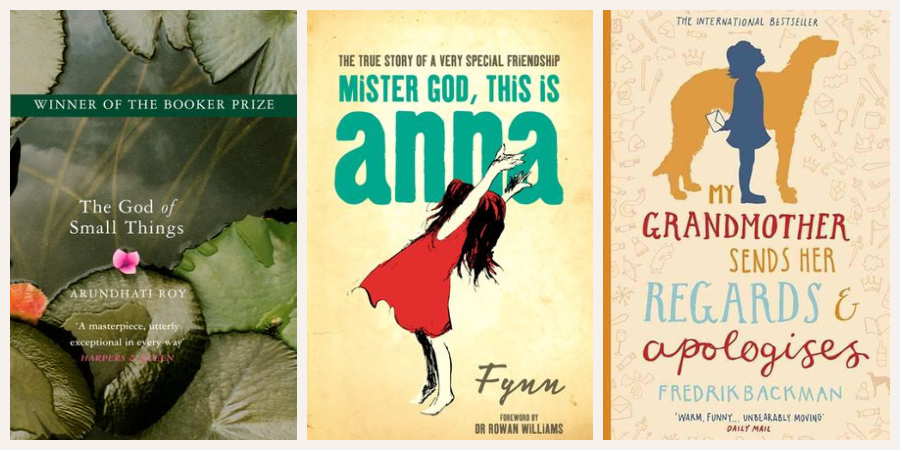
This month, I began in rural Australia in the era of the gold rush and bush rangers, which led to stories set on the other side of the world (Jamaica and Scotland), but with equally ambiguous lines between fact and fiction. While there, I also travelled vicariously to Russia, India, UK and finally to Sweden. Practically a round-the-world trip.
Over to You
Where will six degrees take you?
If you’d like to see where other book lovers ended up, head over to booksaremyfavouriteandbest, where you will find Kate’s chain and links to others.
Next month, the starting book will be Sorrow and Bliss by Australian author Meg Mason, which has been shortlisted for the 2022 Women’s Prize for Fiction.
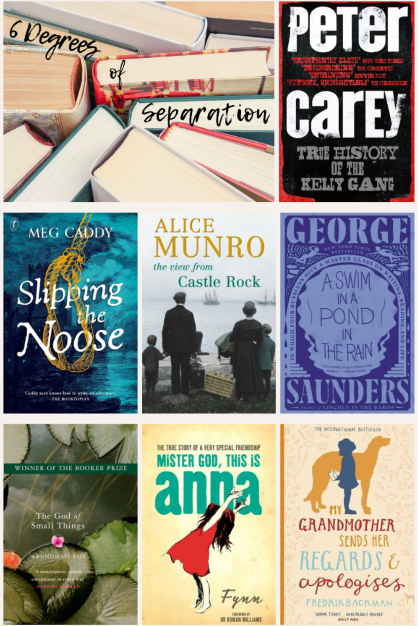

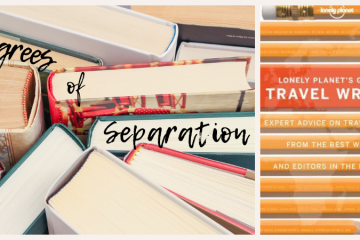
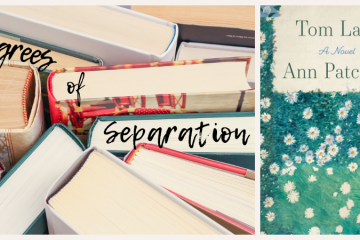
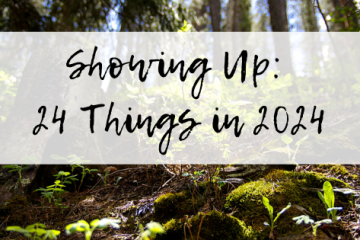
A lovely chain and the links were the best part! The only one of these I have read is The God of Small Things, which I liked better after my book group discussed it than while reading.
I used to run across Anne Bonney in books by a very old fashioned historical writer called Inglis Fletcher. She wrote big family sagas set in the 18th century and sometimes the pirates would appear. All her books have disappeared from the libraries but she was a good researcher, unlike some of the authors I come across today.
I made the mistake (suggested by a coworker) of getting Lincoln in the Bardo on audio. It was hard to follow and I gave up early but I should try it again. This one sounds good too.
Constance
I confess I wasn’t sure if I would be able to read Lincoln in the Bardo, but I’ve had several writer friends who think A Swim in a Pond in the Rain is wonderful.
What an interesting chain here (and the family “connection” sounds tenuous, but who cares, right)!
So many links in our chains are tenuous, aren’t they (family connections or links between books)?!? But you’re right – who cares!
Very interesting chain. My Grandmother was too painful–I couldn’t go on with it.
That’s so interesting, Lisa! There were certainly parts that made me sob, but I couldn’t put it down – reading is so subjective, isn’t it? How far did you get before you had to stop reading?
A great list, Melinda. And you’ve reminded me that I’ve been meaning to read My Grandmother Asked Me to Tell You She’s Sorry, as it was indeed titled here in the U.S.
Interesting books – I do remember that my childhood library had a copy of Mister God, This is Anna – needless to say I read the last bit first (bad habit, usually particularly relevant in animal stories, as I can’t bear to start them if the dog/cat/horse dies), and after that couldn’t bring myself to read the rest.
Alice Munro is perhaps just more honest about what many writers do but don’t admit to doing – ie culling ideas from their family history, then making up the bits they don’t know. I don’t suppose many novelists come up with a totally new idea without some sort of past experience putting it into their mind in the first place – not that there is anything wrong with that.
I also had the habit of reading the end of a book! I’m better at resisting now, although it never actually diminished my enjoyment of the book in most cases.
The great great uncle story is cool, even if it is unlikely to be true.